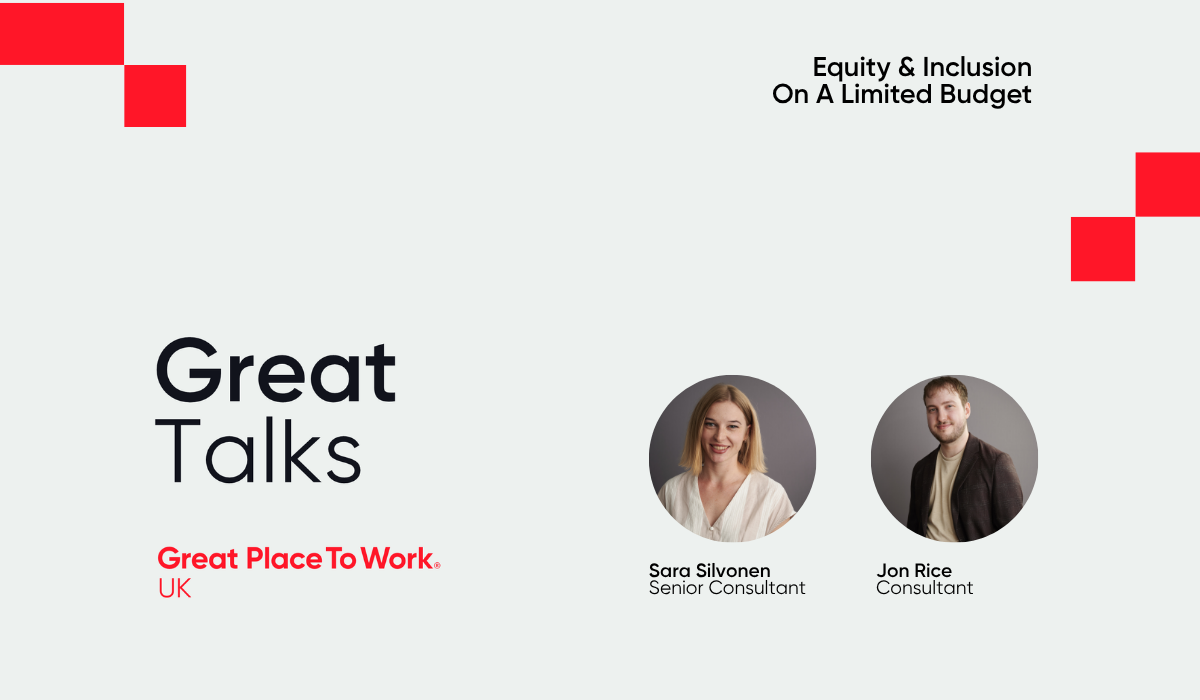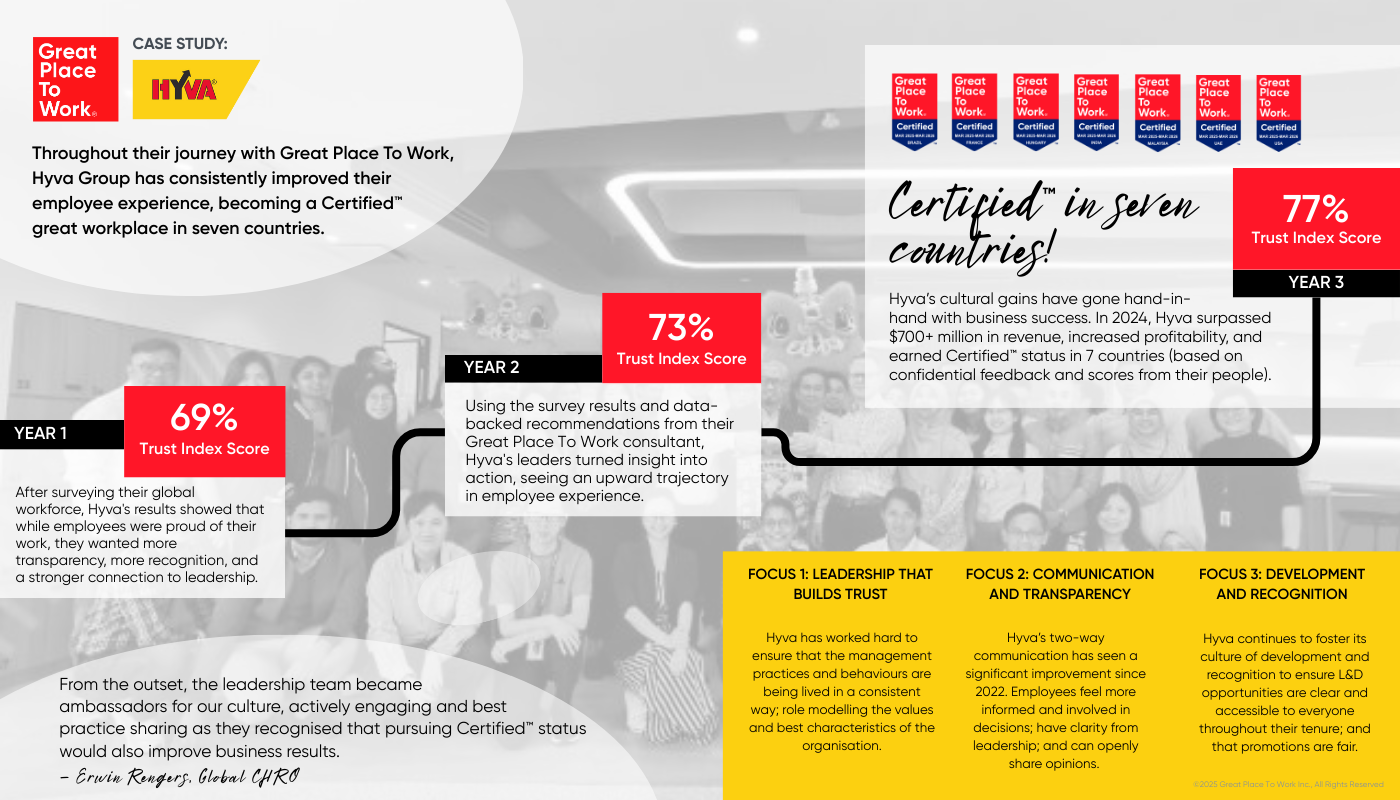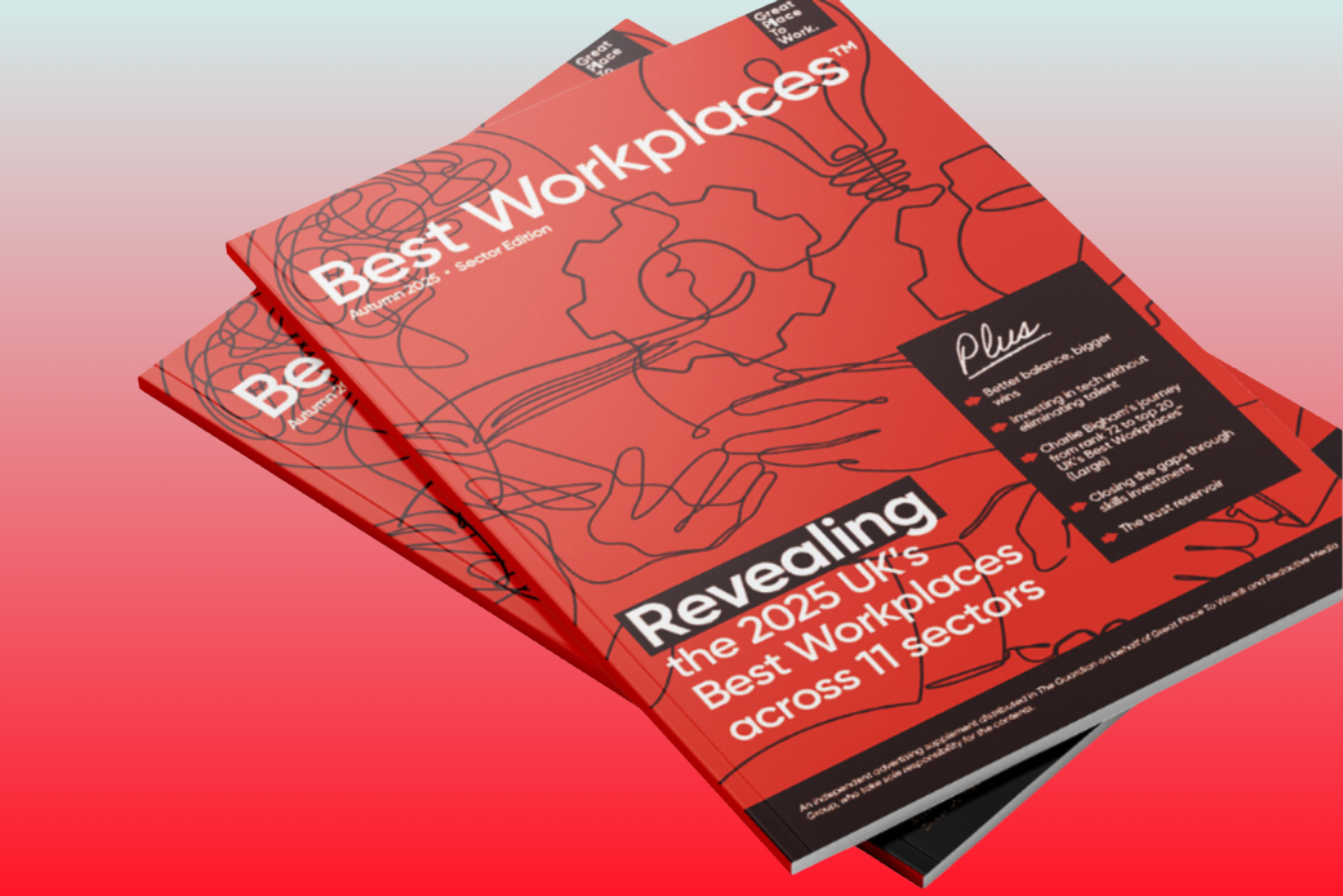Employees at psychologically healthy workplaces are more likely to innovate, stay longer, and more strongly advocate for their employer. But what are the key drivers of psychological health at work?
Psychological health refers to an individual’s total state of mental wellbeing – encompassing key areas such as emotional, cognitive and social health. Narrowing the scope to specifically psychological health at work, it refers to the how employees can manage the demands of their roles, and the intangible working environment that drives an organisation’s culture. When strong, this provides the foundation for employees to thrive and reach their maximum potentials in their roles.
There are various psychosocial factors that are specific to psychological health at work. These include themes such as;
- Jovial workplace relationships that also provide comfort and allow employees to ‘blow off steam’ when faced with challenges at work
- High levels of support from both interpersonal relationships, but also from leadership and at an overall organisational level
- Transparency in communications and strategy, giving employees a level of trust in that they are not being withheld key information
- Empowering employees to be able to speak up and voice their concerns when they may be facing challenges to their Psychological Health, or have feedback on what improvements could be beneficial to it
- Managers consistently behaving in ways that align with the expectations expressed in the organisational values, and being seen to be a source of support and assistance when necessary
The Impact of Psychological Health at Work
Our recent European Workplace Study demonstrates how employee psychological health is intrinsically linked to the level at which an organisation is performing, directly impacting many metrics viewed as key performance indicators. This includes retention – with employees working at highly psychologically healthy organisations being 6x more likely to want to stay at their organisation for a long time, and advocacy — with employees in these organisations reporting 5x higher levels of recommending their workplace to friends and family.
There are also many less obvious effects of high psychological health in the workplace, including its impact on the levels of innovation reported within organisations. The strong support these employees receive, combined with a culture of open communication, is the ideal breeding ground for generating innovative and pioneering ideas – with 75% of employees in psychological good-health reporting having opportunities to innovate at work, compared to only 33% in low-psychological health organisations. Employees at organisations with high psychological health are also 2.5x more likely to report high levels of customer satisfaction than those in low-health organisations.
Key Drivers of Psychological Health at Work
At Great Place To Work we ask employees to report if their organisation “is a psychologically and emotionally healthy place to work” as one of our core 60 statements, also forming part of the broader employee wellbeing framework within our Wellbeing Index. When we assessed the Key Drivers of this statement – which of the other 59 statements has the biggest impact on this one – we found that the top 3 were all under the same key theme of leadership – respect.
These were:
1. Management shows a sincere interest in employees as people
It is crucial as a foundation for psychological health and wellbeing that employees feel like their organisation actually cares about them as individuals, not merely as a cog in the productivity machine. If this base expectation isn’t met, no amount of wellness activities (such as yoga, seminars or free food) will be enough to convince employees that their wellbeing is a priority and any attempts will feel hollow.
The data supports this, as “management shows interest in employees as people” is our number one key driver, having the highest impact on whether employees reported having high levels of psychological health at work.
Following our European Workplace study, we found on average that European employees are only 55% positive around perceiving that their management has a sincere interest in them, however amongst the organisations on our four 2025 Best Workplaces lists™, employees average 86% positive in this perception - 31 percentage points higher.
This just further reinforces how valuable creating those feelings of sincerity from leadership are in creating cultures that are the driving force behind the UK’s Best Workplaces. As an employee from a Medium-sized organisation in the Transport sector puts it, what makes their organisation special and unique is simply: “the genuine support that is given by managers to everyone when they are in need”.
2. Management is genuinely open to suggestions and ideas
Our second key driver is around whether an organisation has created an environment where employees feel they can feel express their ideas and make suggestions on ways to improve. Such an environment creates feelings that leadership values the insights their employees have, and trusts them to express themselves in an appropriate and effective manner, and also empowers employees to feel able speak up if they identify that there are barriers preventing, or challenges affecting, their psychological health in the workplace.
The impact of fostering a strong employee voice cannot be understated. One of its many benefits is it prompts employees to make suggestions or report issues long before they become a wide-scale problem, creating more agile and proactive organisations. Our research has found that the 2025 UK's Best Workplaces, on average, report an 86% score in this area, with the average European Organisation trailing behind by 29 percentage points at 57%.
3. Management involves staff in decisions affecting their work
There is often a sentiment expressed in low-trust organisations that there is an “us vs. them” atmosphere between management and their employees. In these organisations it can feel like management is constantly hoisting changes onto their employees that may disrupt workflows or have unintended consequences, but management want employees to force these changes through regardless.
However, as displayed by our third key driver of psychological health at work, when leaders create a culture where employees feel involved in decision-making, this sentiment often entirely disappears. When employees have a voice in the decision-making process it both makes them feel like their opinions matter – linking to our second key driver above – but it also allows them to identify early on how decisions will impact their day-to-day working lives and therefore the impact it may have on their psychological health and wellbeing in the workplace. This both allows them to protect their wellbeing and helps changes be implemented smoother and more effectively.
It will come as no surprise that this is another area where the 2025 UK’s Best Workplaces are vastly outperforming the European average, with a 25 percentage point gap between the average UK B.W.P. at 80%, and the European Workplace Study at 55%.
To sum it up...
Overall, as demonstrated by our top 3 key drivers, feeling respected by your organisation and its leaders as an individual person with a voice and opinions, is absolutely foundational to creating an environment where psychological health in the workplace is protected, maintained and uplifted.
By upholding the tenet of respect, leaders can encourage employees to work with them to identify and remove any barriers to their wellbeing and support healthy, happy and productive organisations for many years to come.
Discover more about the power of leadership for a healthy and successful workplace in our Leadership in Focus series, based on data from almost 25,000 European employees.












